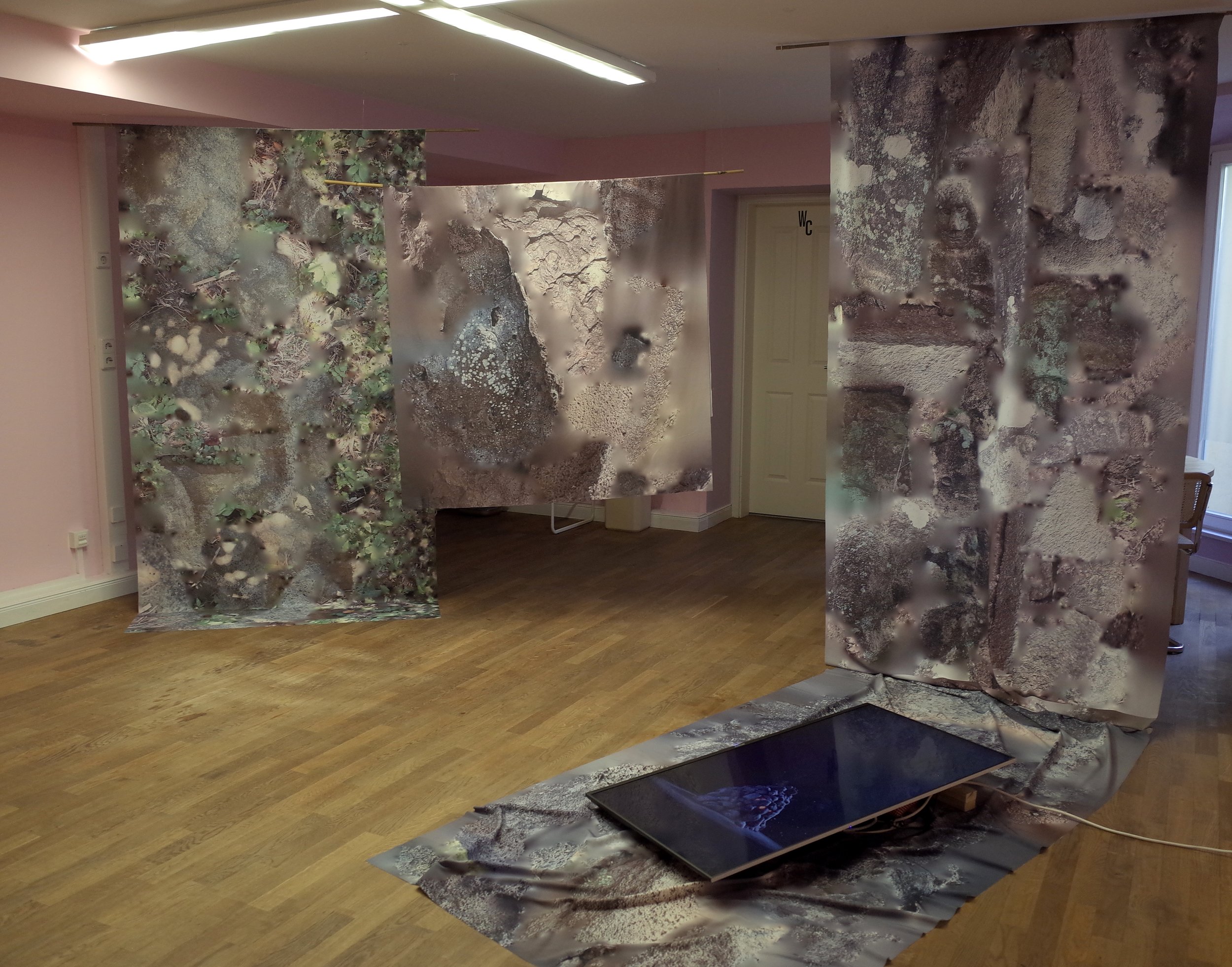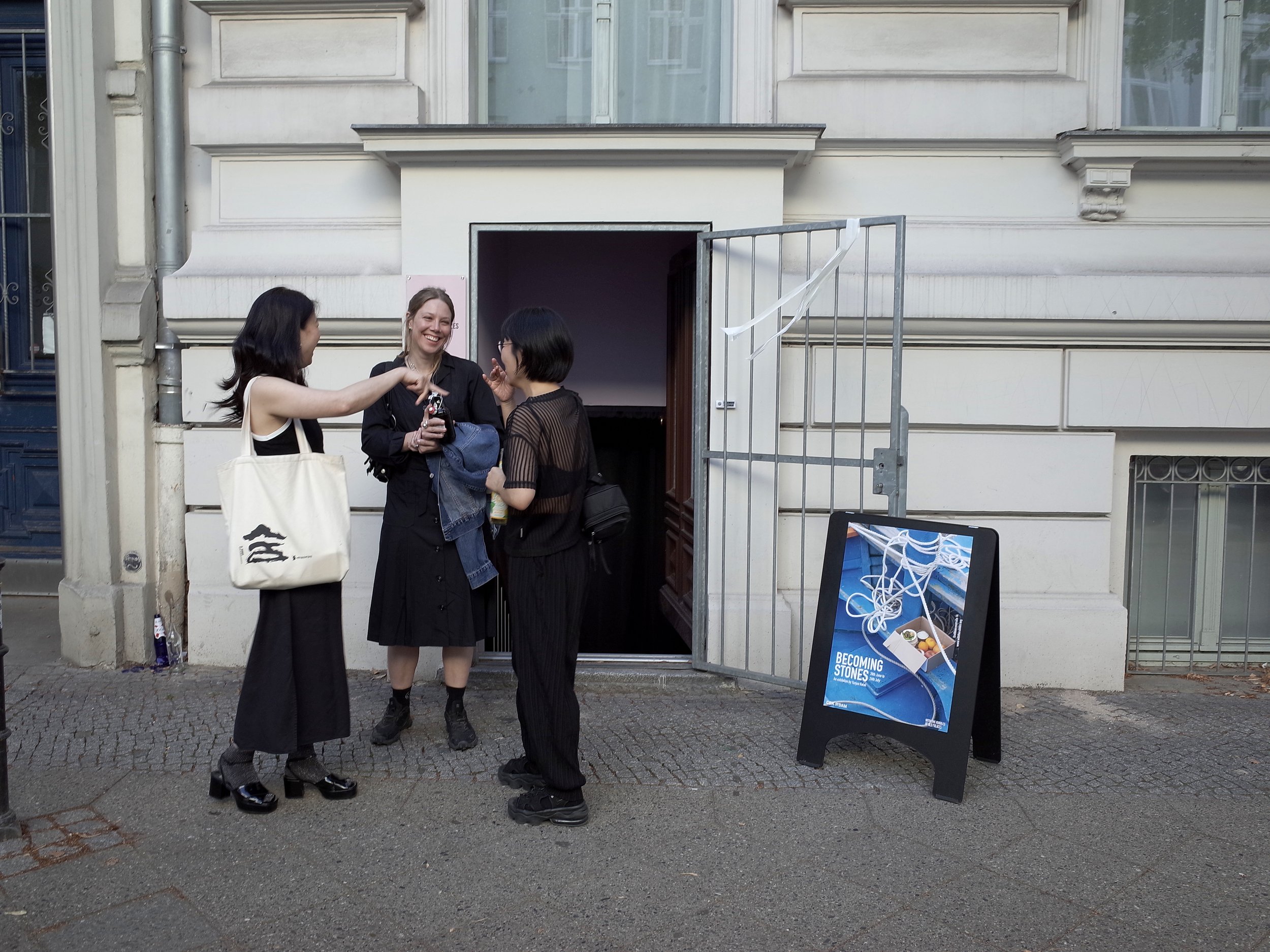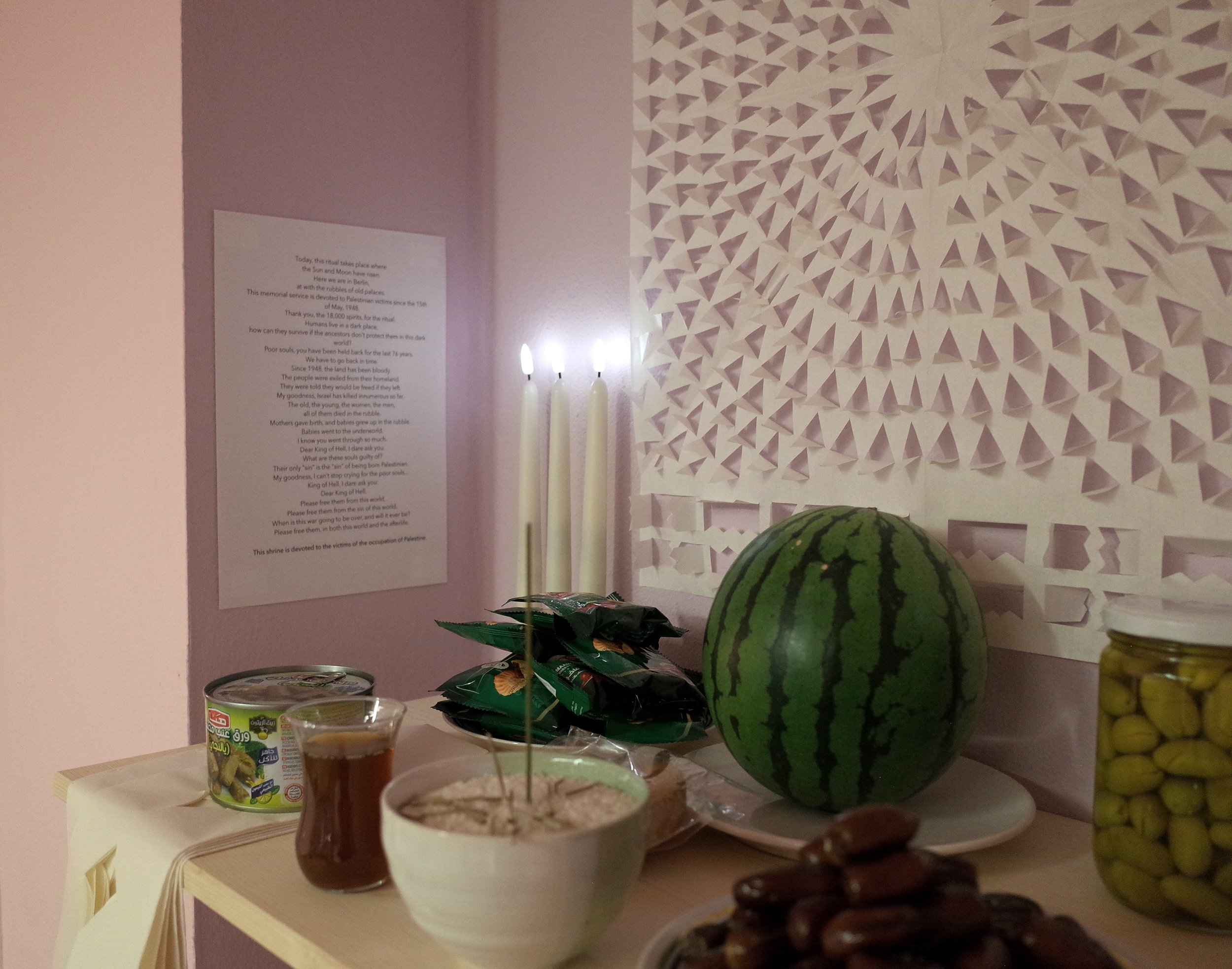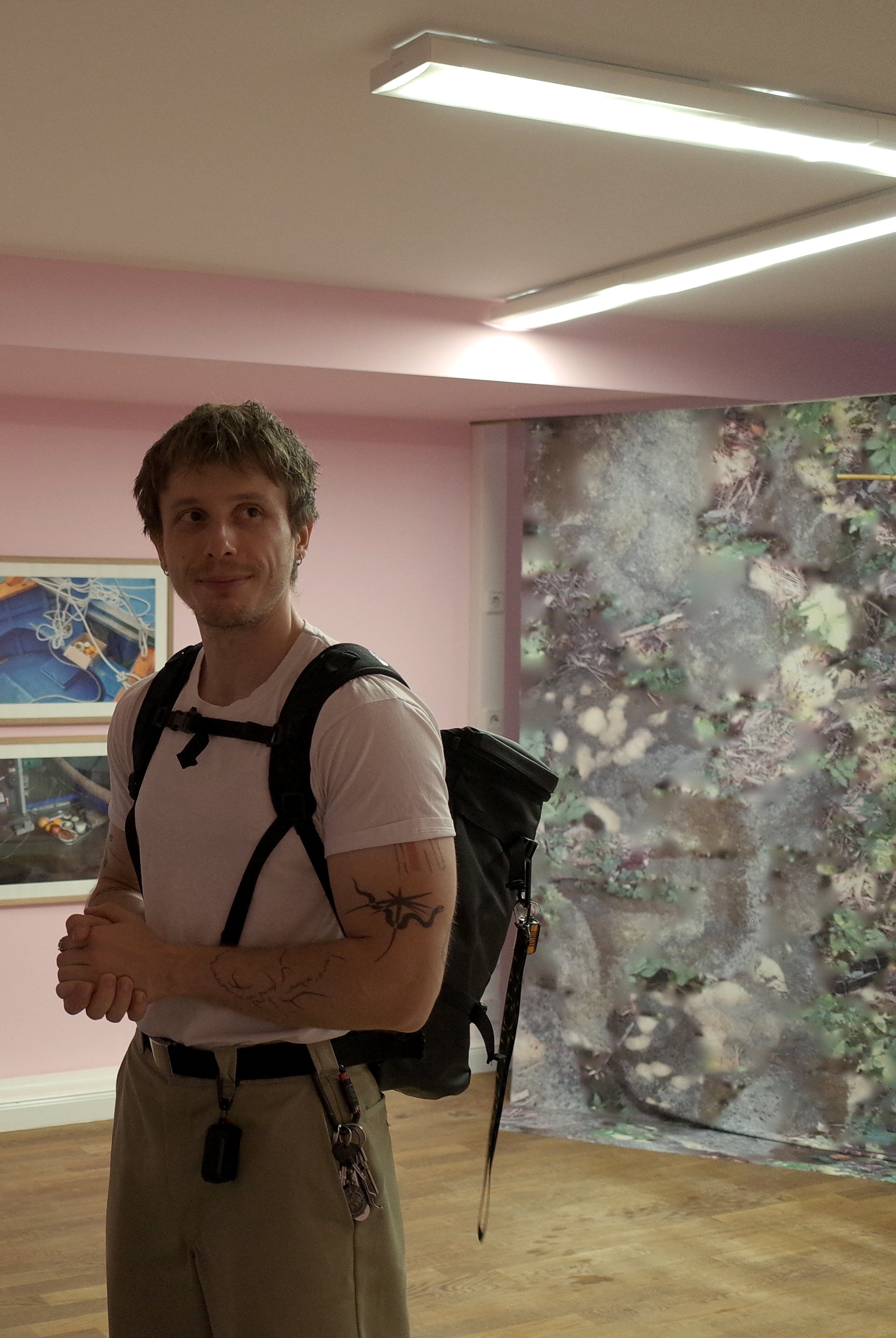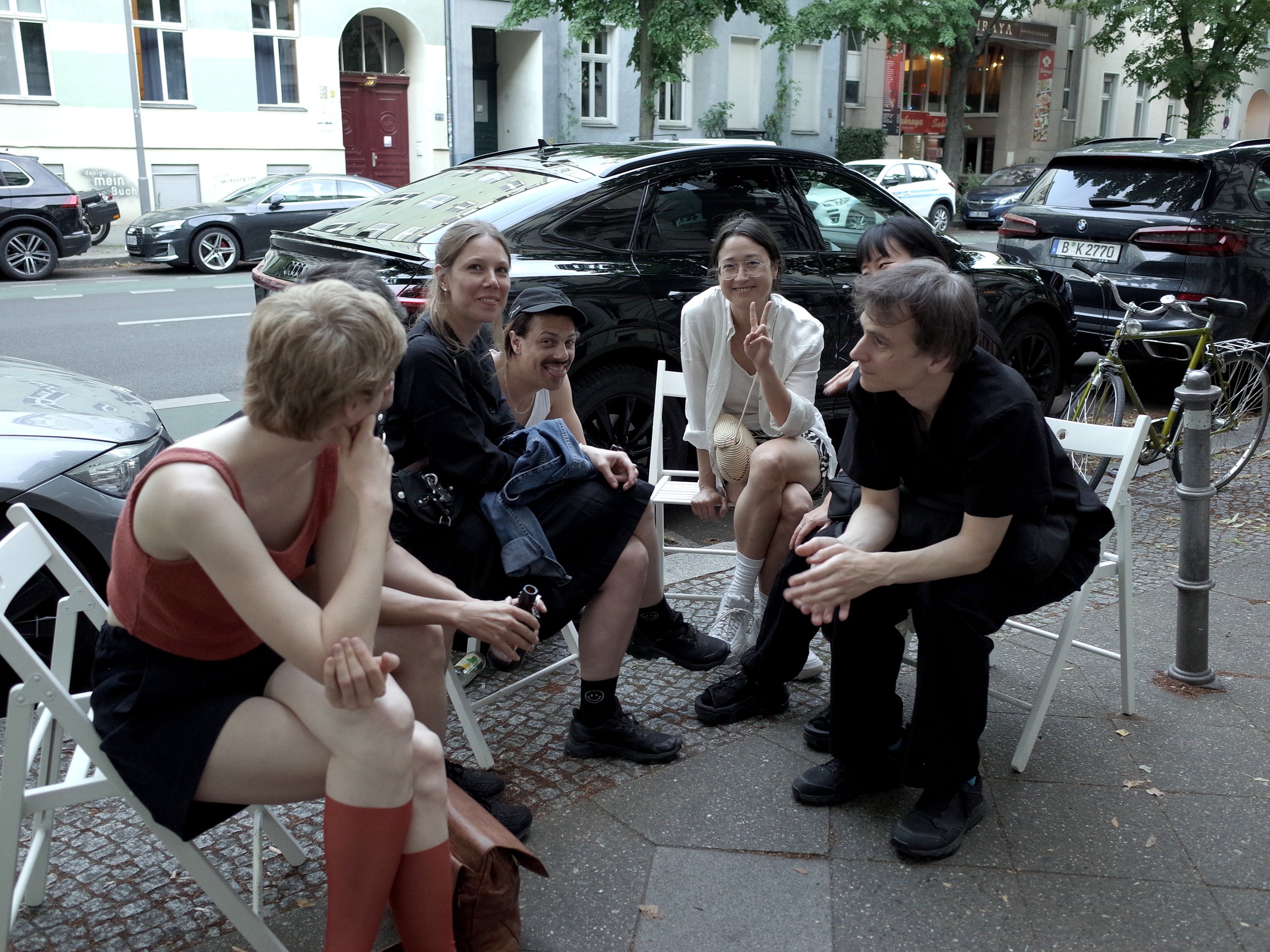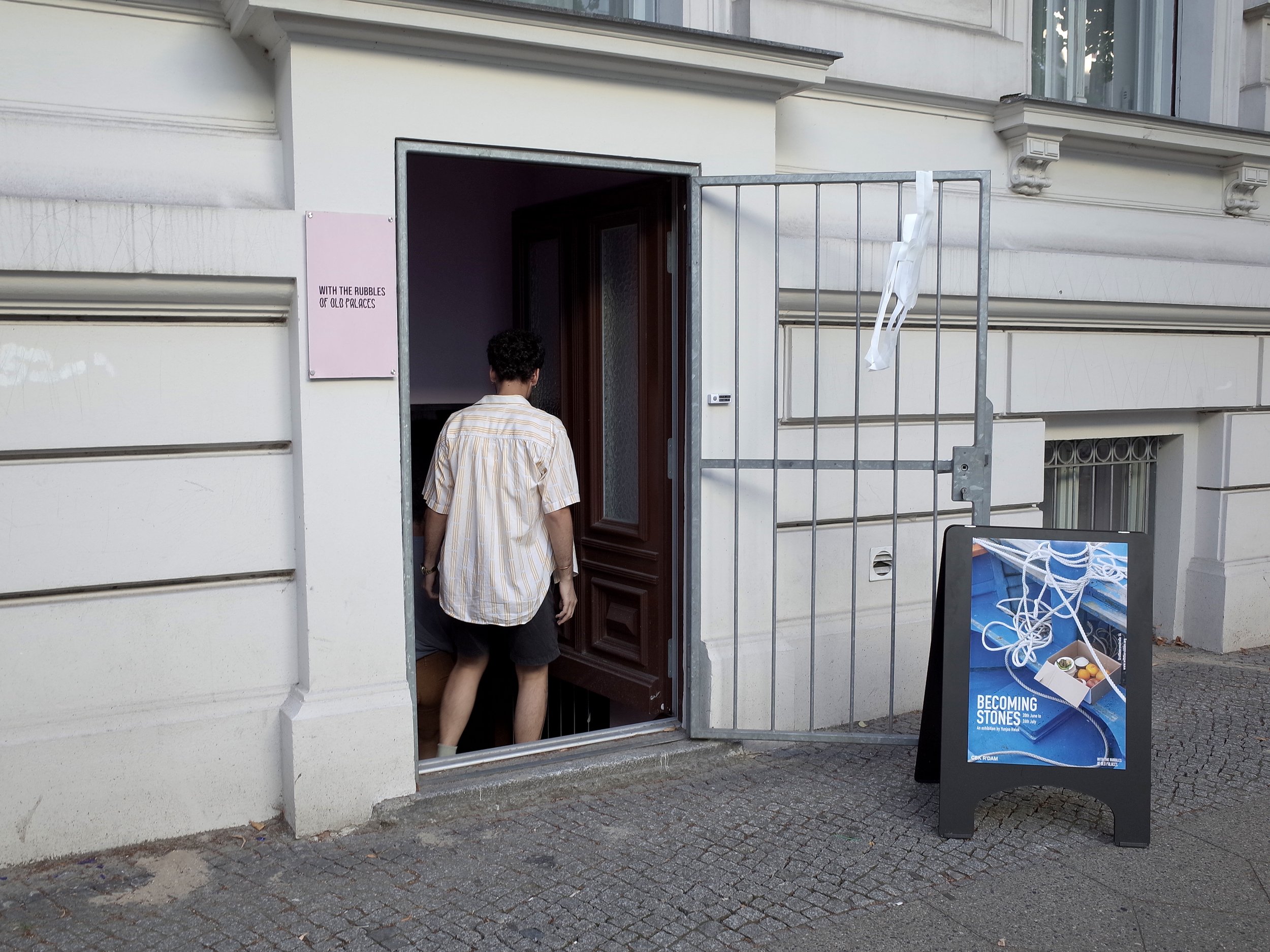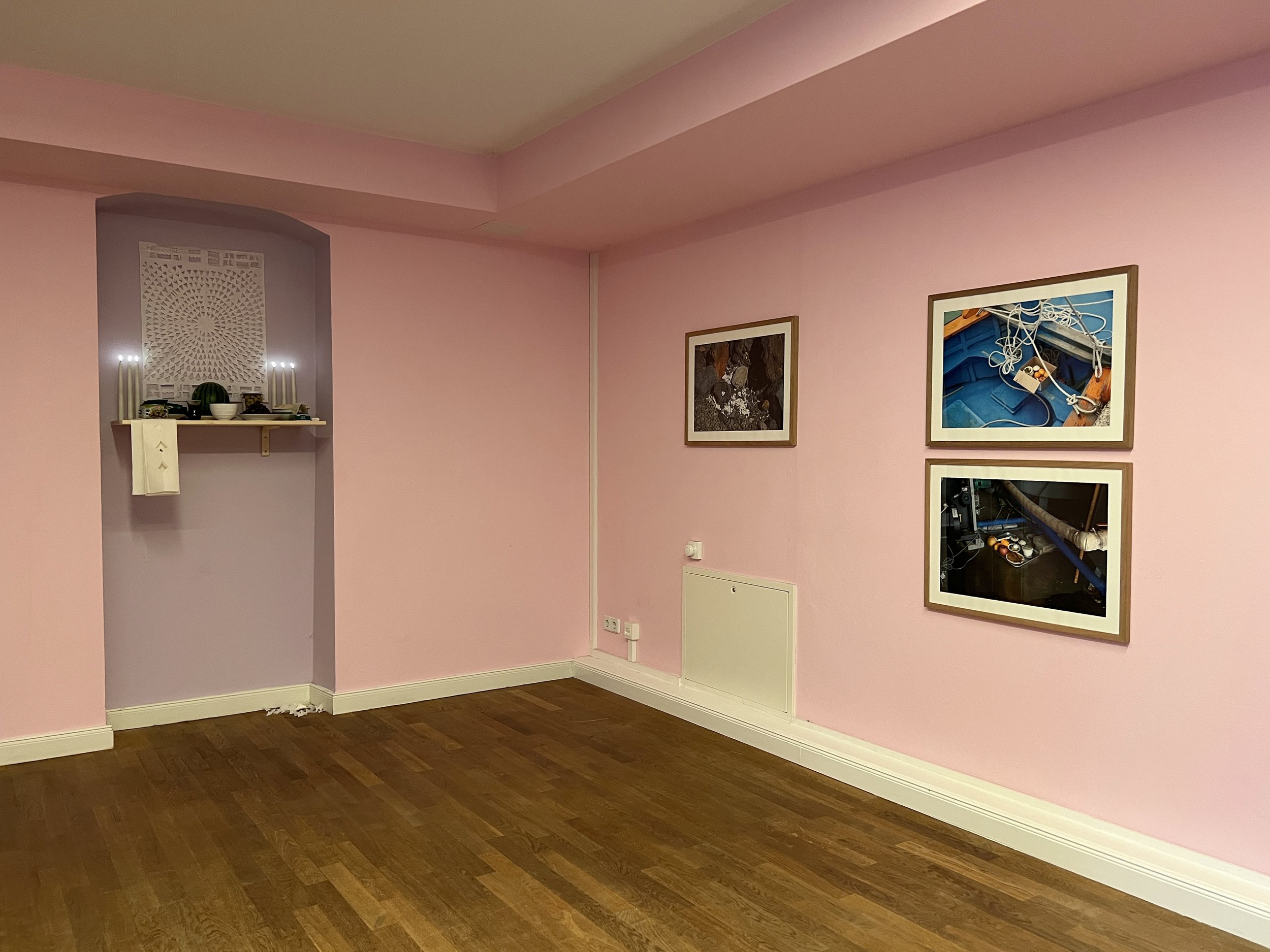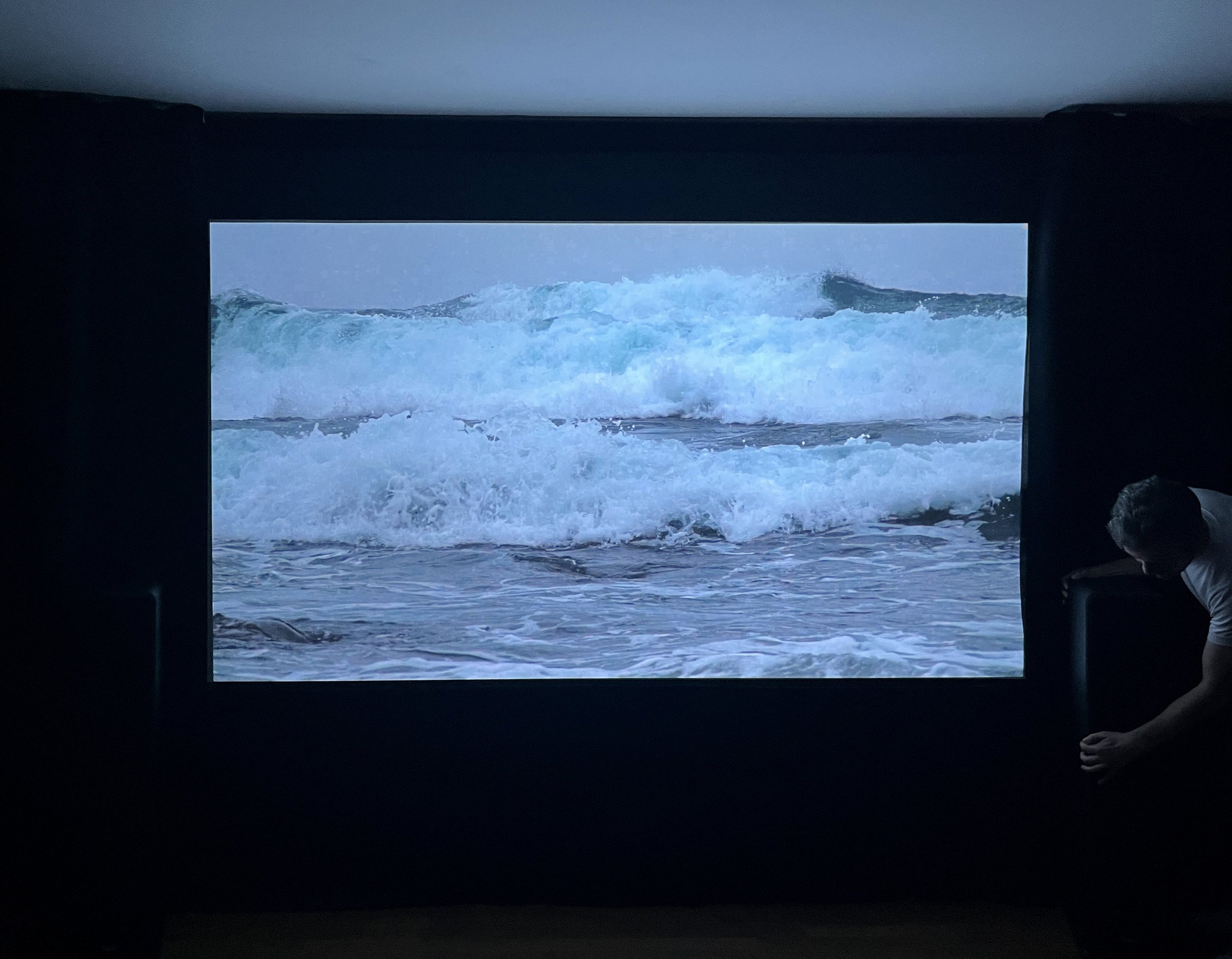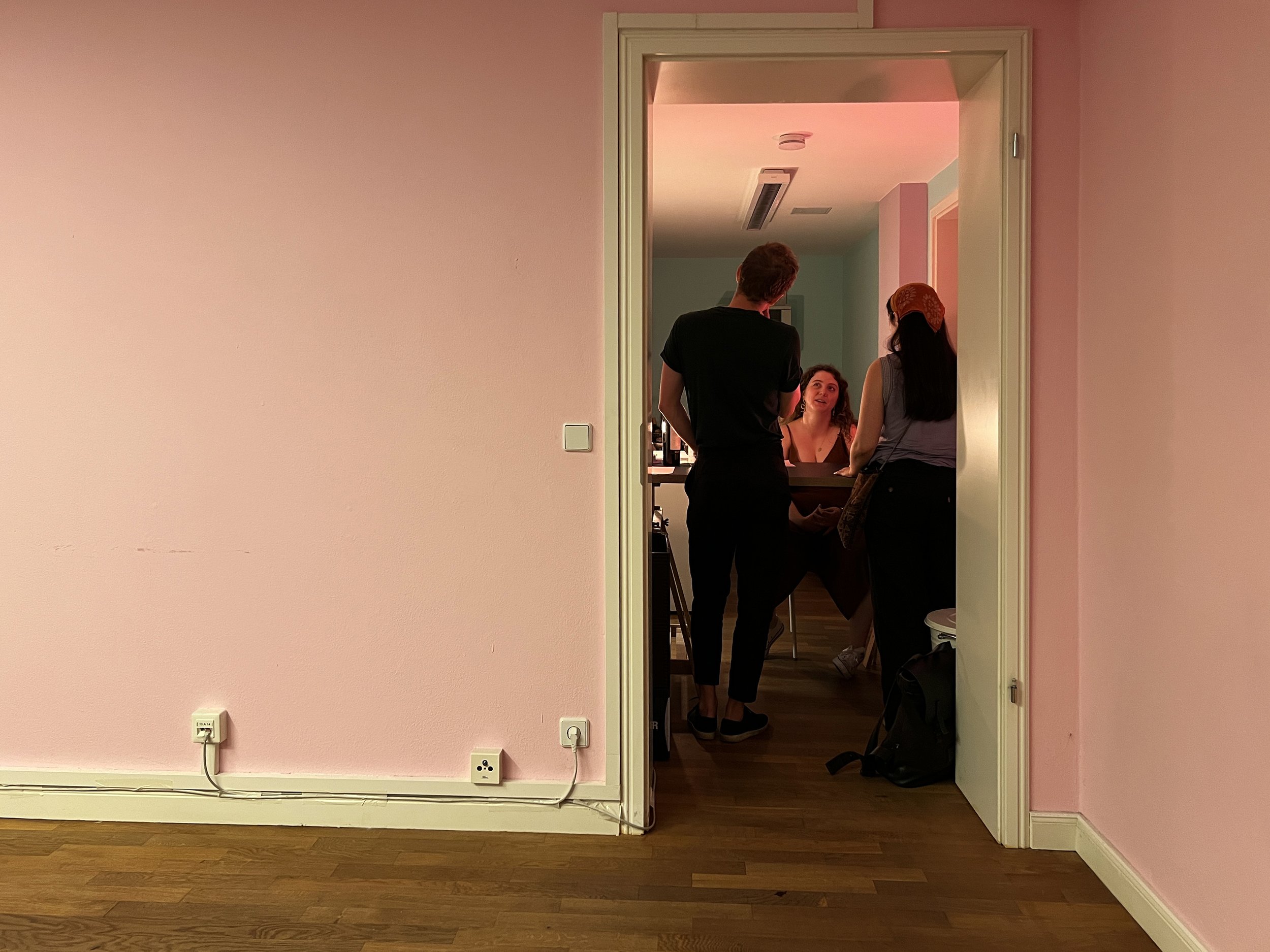BECOMING STONES
Yunjoo Kwak’s exhibition “Becoming Stones” delves into the figure of the Jeju Simbang (Jeju Shaman) as the spiritual agent through which the aftermath of the Jeju Massacre has been, and continues to be, addressed. The 4.3. Jeju Massacre was the mass killing of alleged communist rebels on Jeju Island on April 3, 1948, during the US military occupation of 1945-1948. A massive death toll of 30,000, nearly one-tenth of the entire island’s population, resulted from the mass executions by both the Korean police and the US military forces. This event highlighted the unresolved conflict and ideological divisions leading to the Korean War, and became one of the first outbreaks of violent ideological conflict in the Cold War period. The pro-American right-wing Rhee Sung-man regime emerged in the formation of the First Republic of Korea, legitimating anti-communism as the nation’s official ideology. After the massacre, this ideology continued to dominate state politics in South Korea, effectively silencing much of the memory of the Jeju Massacre on the levels of both personal family histories and national public discourse.
“Becoming Stones” looks at the process of spiritual recovery in the aftermath of the 4.3 massacre through a series of Jeju shamanic rituals. These practices have become a way to process trauma through generations, a means to break the silence of political oppression, and a way through which to survive life. This project attempts to shift shamanic discourse into the wider public realm by sharing their ongoing practice. During these rituals, the Jeju myth’s 18,000 spirits and the life stories of the people who died in 1948 come together to weave a history of their sorrow and violence, enabling the processing of trauma. The physical, psychic, and emotional impacts of trauma go beyond the limits of the dominant historical archive and its knowledge. Through the documentary’s images, one can hear the ancestors speak through the body of the Simbang. In what ways can tragedy and a history of violence be transformed into life-giving forces of healing?
Yunjoo Kwak’s documentary, “Simbang” (60mins, 2024) offers a journey of grief through a series of movements, chants, tears, dances, laments, narrations, commonings, purifications and ritualisations that oscillate between the seen and unseen worlds. In Jeju Island, “심방” (Simbang, 神房) refers to a shaman. “神” (Sim) means spirit, and “房” (Bang) means space or room, evoking the spatial aspect of the shaman's body in connection to the unseen, untouched and unheard, yet powerfully animated world. Their body becomes a sacred vessel where the echoes of the past converge with the immediacy of the present, and glimpses of the future unfold.
Funded by CBK Rotterdam.
Poster’s photograph by Yunjoo Kwak.
28th June to 26th of July 2024
Opening: 28th of June 2024, 6PM until late
To come visit the exhibition, please contact us for an appointment:
info@withtherubbles.org / @withtherubblesofoldpalaces
with the rubbles of old palaces is currently not wheelchair accessible,
please contact our email address for online access to the exhibition’s film.
“Simbang” (2024, 60min) - Director: Yunjoo Kwak / Camera: Yunjoo Kwak, Kyungman Kim, Donghyo Song / Editing: Yunjoo Kwak, Rutger Nijkamp / Sound: Donghyo Song, Jeonghee Song / Sound mixing: Rutger Nijkamp / VFX: Nigel van Roijen / Research support: Jeonghee Song (Center for Jeju Studies), Myeongsun Kim / Jeju dialect transcription and translation: Jeonghee Song / English copy-editing: Amy Pickles / Starring: Simbang Suh Soon Sil & assistants Oh Yong Boo, Kim Young Chul, Lee Kyung Hee, Song Young Mi, Song Jeong Hee, Kin Hyun Joo; Simbang Kim Young Chul & assistants Mah Chee Soon, Sin Bok Man, Kim Eun Hee, Ko Chun Sik; Simbang Koh Deok Yoo & assiatnts Kim Ki Ryung, Koh Kwang Chil, Moon Jang Gil, Koh Suk Cheol; Simbang Oh Yong Boo & assistants Suh Soon Sil, Lee Yeon Sil, Lee Sung Hee, Shin Seung Ho, Jang Ji Hye; Simbang Song Young Mi; Simbang Choi Hyang Sook; Jo Cheon-eup Haenyeo community, Sa Kye-ri Haenyeo community, Tae Heung 1-ri Haenyeo community, Han Soo-ri Haenyeo community, Ko Seong-ri Haenyeo community, Gim Nyeong-ri Haenyeo community, Handong-ri Haenyeo community, Haengwon-eup Haenyeo community, Jongdal-ri Haenyeo community.
PROGRAM
SCREENING:
UNTIL THE STONES SPEAK
This Sunday the 30th of June at 3pm, we will be screening Until the Stones Speak (2022, 100 min), by Kim Kyung-man as part of the program of the exhibition Becoming Stones by Yunjoo Kwak. Come join us for the screening and Q&A.
Until the Stones Speak by Kim Kyung-man, follows the stories of several women wrongly incarcerated for crimes they did not commit during the 1948 Jeju Uprising. As they tell the truth, the horrific scenes of their experiences are brought back to life.
The Q&A with bring together film-maker Kim Kyung-man with artists Angela Anderson and Sylbee Kim, who will discuss Until the Stones Speak and the history of the 4.3. Jeju massacre.
Kim Kyung-man has been making independent documentary films because he believes that historical awareness is an important issue. His short films include “Things that We Shouldn’t Do” (2003), “The Food Doesn’t Catch a Cold (2008) and “Beep” (2014). His feature films include “An Escalator in World Order” (2011) and “People Passing By” (2014).
Angela Anderson is an artist and researcher working primarily in multi-channel video installation, photography, sound and sculpture. Through speculative cartographies of multiple materialities and temporalities, her artistic work seeks to challenge patriarchal, extractivist narratives and foster inter-species & inter-material solidarity from a queer feminist perspective.
Sylbee Kim is a video artist who’s works articulate the consonance between spirituality and neoliberalism, exploring how technology and capital have displaced mythological figures and deities as paragons of virtue. Through a combination of allegorical imagery, speculative manuscripts and diverse display structures, she forges new discursive approaches toward understanding the ways that desire and doctrine hold sway over the human psyche.
SCREENING:
30th June 2024, at 3pm
with the rubbles of old palaces is currently not wheelchair accessible,
please contact our email address for online access to the film.
A CONVERSATION
WITH SONG JEONGHEUI
Come join us at Yunjoo Kwak’s “Becoming Stones” finissage: a conversation on Jeju shamanic rituals with scholar and musician Jeongheui Song.
During the conversation with Yunjoo Kwak, Jeongheui Song will introduce Jeju shamanic rituals, both as an academic discipline and a spiritual study and practice. She will share the multifaceted nature of shamanic studies, emphasizing its connections to various fields such as agriculture, history, literature, religion, politics, psychology, music, and visual art. She will discuss how these rituals are not just isolated spiritual practices but are deeply intertwined with everyday life, historical trauma and cultural heritage. She will look at the ways in which these rituals reflect and influence agricultural practices, embody historical narratives, inspire literary works, and intersect with both religious beliefs and political dynamics. In essence – a study of life itself.
Yunjoo Kwak will also provide more insights into the connections between her previous research on the notion of colonial architecture and her current investigation on spiritual architecture.
Jeongheui Song, born and raised in Jeju, is a scholar and musician deeply rooted in the cultural heritage of Jeju Island. She currently works as a researcher at the Center for Jeju Studies, where she contributes to the understanding and preservation of Jeju's folklore culture. She is also the director of the art and culture organization “The Nolm”, and teaches Korean traditional music.
She studied Korean literature and focused her MA research on 석살림 (Seoksallim), a part of Jeju shamanic ritual. She continued her scholarly pursuits with a doctorate at the Interdisciplinary Postgraduate Program in Koreanology at Jeju National University on Jeju folk songs, sung for weeding in dry-field farming. As a researcher at the Center for Jeju Studies, Jeongheui has co-authored works on a series of 본풀이 (Bonpuri: Korean shamanic narratives recited in the shamanic rituals of Jeju island), with Jeju shamans such as simbang Kang Dae Won, simbang Suh Soon Sil and simbang Ko Soon An. One of her research projects revolves around the sustainability of ownership, locations and maintenance of 192 shrines in Jeju-si.
Funded by CBK Rotterdam.
Poster’s photograph by Yunjoo Kwak.
Friday 26th July 2024, at 6pm
We apologise as with the rubbles of old palaces is currently not wheelchair accessible.
